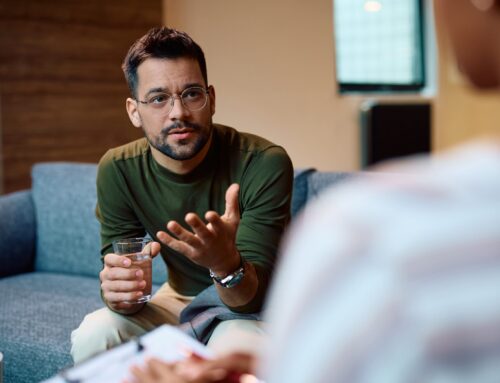Couples Counselling
When is the right time and why should we seek the help of a couple’s counsellor?
Many people ask when is the “right” time to seek counselling as a couple. There are many possible answers to this question, but often couples seek the help of a therapist when the issues have really taken root in their relationship.
Often by the time both parties agree to start counselling the couple is dealing with a huge breakdown in communication, changing sense of connection, conflict and in some cases, infidelity.
These are all things that could be managed with the help of a licenced mental health professional.
The best suggestion that can be given, would be to seek help long before you think you need to. Most couples will admit that there were small issues that came up over the course of their relationship that “snowballed” over time and created much bigger problems within the relationship. Counselling could have supported exploring and possibly identifying these smaller issues and given the couple tools and techniques to deal with conflict when it arose.
What are some things people seek couples counselling for?
- Communication problems
- Intimacy/Sexual problems (including infidelity)
- Financial concerns/disagreements
- Major life changes (newly married, starting a family, moving to a new area for work)
- Disagreements over parenting.
- Feeling less connected as a couple
What if my partner doesn’t want to go for couples counselling?
This is definitely an issue that comes up during couples counselling. One person may feel like they won’t be heard or understood or it may shock them that you are springing this on them.
The best suggestion we can give you for this situation is:
- Discuss the possibility of couples counselling before committing to or booking anything.
- Talk to your partner about what you hope to get out of couples counselling and ask what they would like to work on.
- If your partner won’t agree to it, you can still have individual therapy which would be helpful as you navigate the difficulties within your relationship. The hesitant partner may see you grow in therapy and make positive changes and it may make them more open to the counselling process.
Final Thoughts:
- When looking for a couple’s therapist, do your research! Make sure the therapist is a licenced mental health professional with experience working with couples.
- Ask for a free consultation. Many therapists will offer free consultations so that you both have an opportunity to discuss the issues you are experiencing and find out if the counsellor is a good fit for your unique relationship.
- The consultation will also help the couple decide if they both feel heard,understood and respected by the therapist.
- Make sure you both have set some attainable and measurable goals for the relationship (even if those goals are different.)
At Brant Mental Health Solutions, Registered Social Worker Sharon Walker, works with couples and families. She has over 30 years experience in the mental health field and as a social worker it is her goal to help to facilitate the unpacking of the journey, to name the important things in life, and co-create strategies to achieve the goals set.












 Sharon Walker, MSW, RSW
Sharon Walker, MSW, RSW Jordon Iorio Hons. BA, RSW
Jordon Iorio Hons. BA, RSW Christine Bibby, B.S.W., M.S.W., R.S.W.
Christine Bibby, B.S.W., M.S.W., R.S.W. Brianna Kerr, RSW
Brianna Kerr, RSW Danielle Vanderpost, RSW
Danielle Vanderpost, RSW Daniela Switzer, MA, C.PSYCH
Daniela Switzer, MA, C.PSYCH Tammy Adams
Tammy Adams Jade Bates, RMT
Jade Bates, RMT Caitlin Schneider
Caitlin Schneider Dr. Crysana Copland
Dr. Crysana Copland
 Amy Dougley
Amy Dougley Emily Kamminga
Emily Kamminga Bill Dungey, RSW
Bill Dungey, RSW



 Jessica Moore, RSW
Jessica Moore, RSW Abigail Wragge, RSW
Abigail Wragge, RSW Melanie Clucas
Melanie Clucas Ally Legault
Ally Legault Kunle Ifabiyi
Kunle Ifabiyi Tammy Prince
Tammy Prince
